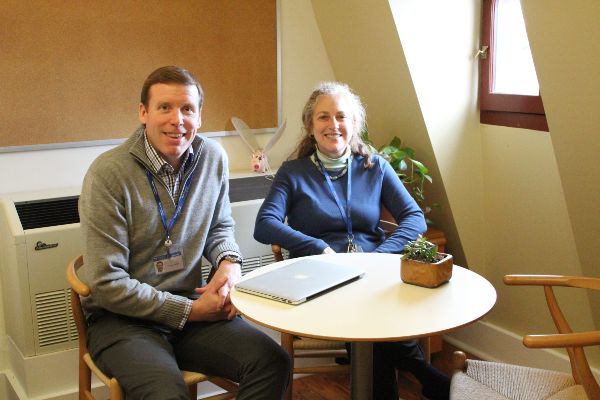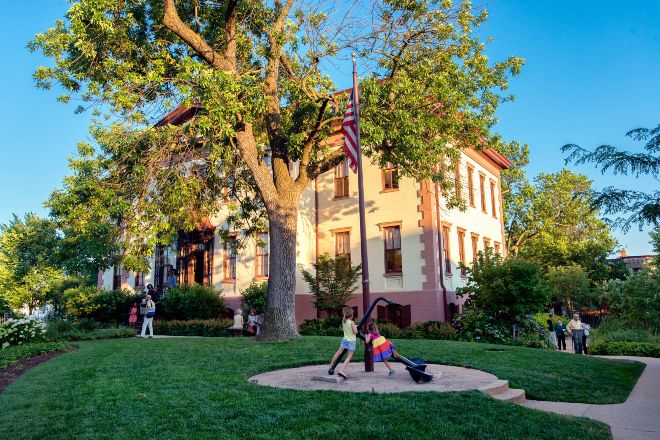Article by Donna Davis
Photo above: the Hill Center in Washington, D.C., home of Blyth-Templeton Academy as well as galleries and cultural programming
Blyth-Templeton Academy in Washington, D.C., grew out of an entrepreneurial spirit. The new micro-school, founded by Temp Keller of Templeton Learning and Sam Blyth of Blyth Education, began as many startups do — with questions.
“We’re coming at this as entrepreneurs often do — asking a few big questions and working hard as a team in collaborating to come up with our best answers,” Keller said. Those big questions? “What could and should teaching and learning look like in the 21st century?” And, perhaps as important, “Tuition has outpaced inflation considerably for decades. Why is that? And how can we deliver a high-quality but highly accessible independent school model?”
Now we can attract stay-at-home parents, the Ph.D. candidate who can teach computer science or the wonderful retired educator who does not want to teach full-time.
Temp Keller
Templeton Learning
BTA answers those questions with its small size, reliance on rented space rather than the build-out of a fully equipped campus, and mission to take advantage of what the D.C. area offers — from monuments and museums to mass transportation. This model is a “disruptor” for educators, Keller said. Because students study two subjects per 10-week term rather than the traditional six or seven subjects, BTA has been able to attract educators who have opted out of traditional teaching positions due to time or family constraints. “Now we can attract stay-at-home parents, the Ph.D. candidate who can teach computer science or the wonderful retired educator who does not want to teach full-time,” he explained.
A startup also enjoys the advantage of starting anew — a luxury few established schools have. “Reinventing an organization with a long, proud history in evolving times is tough,” Keller said. One book that inspired him as entrepreneur in residence at Acton Academy in Austin, Texas, was "Unschooling Rules," by Clark Aldrich. The emphasis on “learning to do and be” over “learning to know” is one such rule he saw put into practice at Acton and its network of small independent schools.

“It’s the fundamental question of what are your gifts and how can you use them in a way that brings you joy and serves others?” Keller said.
Other individuals are studying innovation from the viewpoint of the established independent school, including Tim Fish, NAIS’ first chief innovation officer. The independent school veteran — most recently he served as associate headmaster and interim CFO for McDonogh School in Owings Mills, Maryland — likens innovation to mountain climbing through a landscape he calls the “Magnetic Mountain.”
Many established schools are living in “Now Town” at the base of the mountain, Fish said. “It’s a lovely place to be where great things are happening. But we also know, when we look out at the horizon, that forces are acting on Now Town that make us think about evolving and moving beyond.”
Some schools have a catalyst — a market condition that forces the school to act.
Those forces involve re-imagining the independent school business model and the evolution of teaching and learning. Some schools have faced those forces head-on, Fish said, collaboratively “thinking about both the educational and business models and trying to merge those two.” He cited Schools Lakeside School’s micro school project (see related article "The Best of Both Worlds") and the merger of Hawken and Birchwood schools (see "Stronger Together" from the March/April 2017 Net Assets) as examples.
Since taking on his new role in July 2016, Fish has visited dozens of schools. “While I have seen innovation at every school, I haven’t seen every school in that posture of strategic innovation,” which he calls an essential element for schools. Fish’s goal is not to tell schools what to do but to show them how to create their “summit ideas.”
Implementation is the most difficult, Fish said. Every school will go about it differently. Some have a catalyst — a market condition that forces the school to act or the need for change as part of an accreditation process. For others, Fish said, “it’s part of their DNA. Some summit because they always have been summiting. Some schools are just getting started. They were born on the mountain.”



